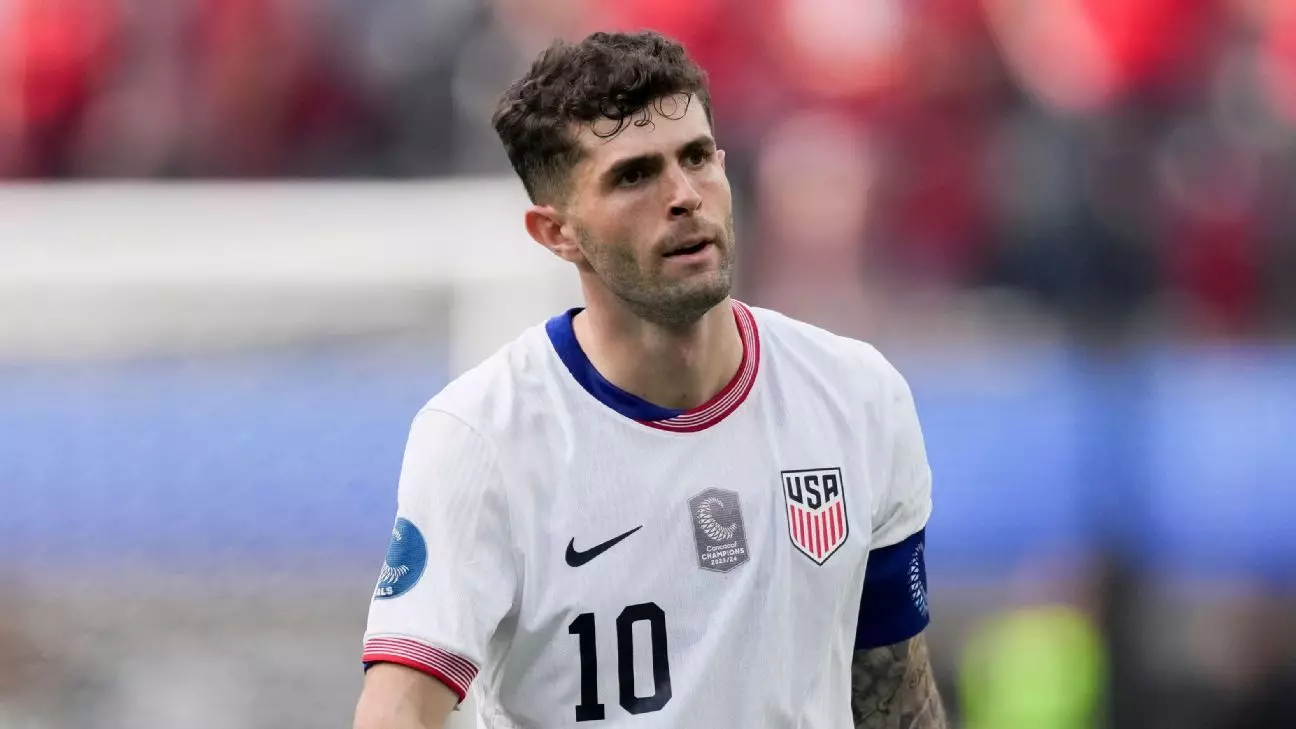In the world of professional soccer, the expectations placed upon players represent a double-edged sword: the immense pressure to perform on one hand and the mental and physical toll it takes on the athlete on the other. The recent controversy involving Christian Pulisic and Landon Donovan sheds light on this intricate balance. Donovan, a revered figure in American soccer, voiced his discontent with Pulisic’s decision to forgo participation in the Gold Cup to recuperate after a taxing season with AC Milan. His barbed comments not only aimed at Pulisic but echoed through the entire community of players who must repeatedly choose between self-care and national duty.
Donovan’s emphatic broadcast remarks echoed the traditional ethos of soccer; he framed the argument in a manner that painted players opting for rest as lackluster or insufficiently patriotic. However, this perspective often fails to recognize the nuanced realities of modern athleticism—realities that Pulisic, and indeed many athletes, experience first-hand.
Understanding the Need for Rest
Mark Pulisic, Christian’s father, adroitly countered Donovan’s criticism by invoking memories of Donovan’s own career. Back in 2012-13, Donovan took a sabbatical from soccer, a crucial pause in his relentless pursuit of excellence that ultimately resulted in missing the 2014 World Cup. His reasons were deeply personal; they reflected a human need for respite amid years of rigorous competition. Cody Matz, a sports psychologist, emphasizes the critical importance of mental well-being, stating, “The physical aspects of the game are amplified by mental pressures that can lead to burnout. Rest is not an absence of responsibility; it’s an essential part of sustained performance.”
With this in mind, it’s clear that top athletes like Pulisic must prioritize their long-term health. They face increasingly challenging demands on and off the pitch, including immense visibility, fan expectations, and the unforgiving nature of soccer culture that often equates participation with valor.
The Burden of Expectations
Criticism comes naturally in the competitive realm of sports, but nuanced reflection should also guide public sentiment. In this instance, former U.S. soccer player Alexi Lalas joined Donovan in chastising Pulisic’s absence from the Gold Cup, suggesting that the national team requires optimal cohesion leading to the World Cup. However, such sentiments can overlook the dire costs associated with ignoring personal limits. The numerous injuries among players can often be traced back to a history of disregarding this balance.
Rather than viewing Pulisic’s decision as a failure of commitment, the discourse needs to shift toward empathy and understanding. The argument that “the team needs playing time together” is valid, but fails to recognize that without healthy, fully engaged players, the long-term success of the team is jeopardized. Sustainable performance ought to be celebrated over empty patriotism.
Shifting the Narrative: A Lesson for Soccer Culture
The expectation to compete continuously can often lead to harmful consequences—not only for individual players’ well-being but for the integrity of the sport. The American soccer culture is at a crossroads, where embracing a mindset that includes athlete welfare alongside national pride could foster a healthier ecosystem for upcoming talent. Relying on the historical sacrifices and heroics of former players, without recognizing the context of personal sacrifices made by modern athletes, could lead to a toxic narrative that stifles growth.
While Donovan’s remarks were undoubtedly heartfelt and rooted in a deep love for the sport, they also reveal a culture that is struggling to adapt. All stakeholders—players, coaches, pundits, and fans—should engage in a re-evaluation of what it means to represent one’s country on the field. The physical and mental health of players should not merely be an afterthought; they should be central to how we support our national teams and athletes.
Each decision made by players like Pulisic should be respected as part of a larger journey toward not just individual success but the future glory of American soccer. For real progress in the sport, it is essential to foster an environment where rest is acknowledged as a path toward excellence rather than an indictment of commitment.

